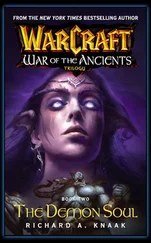Richard Dehan - The Dop Doctor
Здесь есть возможность читать онлайн «Richard Dehan - The Dop Doctor» — ознакомительный отрывок электронной книги совершенно бесплатно, а после прочтения отрывка купить полную версию. В некоторых случаях можно слушать аудио, скачать через торрент в формате fb2 и присутствует краткое содержание. Жанр: foreign_antique, foreign_prose, на английском языке. Описание произведения, (предисловие) а так же отзывы посетителей доступны на портале библиотеки ЛибКат.
- Название:The Dop Doctor
- Автор:
- Жанр:
- Год:неизвестен
- ISBN:нет данных
- Рейтинг книги:5 / 5. Голосов: 1
-
Избранное:Добавить в избранное
- Отзывы:
-
Ваша оценка:
- 100
- 1
- 2
- 3
- 4
- 5
The Dop Doctor: краткое содержание, описание и аннотация
Предлагаем к чтению аннотацию, описание, краткое содержание или предисловие (зависит от того, что написал сам автор книги «The Dop Doctor»). Если вы не нашли необходимую информацию о книге — напишите в комментариях, мы постараемся отыскать её.
The Dop Doctor — читать онлайн ознакомительный отрывок
Ниже представлен текст книги, разбитый по страницам. Система сохранения места последней прочитанной страницы, позволяет с удобством читать онлайн бесплатно книгу «The Dop Doctor», без необходимости каждый раз заново искать на чём Вы остановились. Поставьте закладку, и сможете в любой момент перейти на страницу, на которой закончили чтение.
Интервал:
Закладка:
"I … I took 'im to please meself … not you, nor the Hempire neither."
"Reckon you was precious 'ard up for a chap. Good-afternoon, Miss."
He touched the cheap Panama, and swung theatrically round on his heel. Between him and the saloon-door there was a solid barricade of heavy Dutch bodies, in moleskin, tan-cord, and greasy homespun, topped by lowering Dutch faces. Brawny right hands that could have choked the reedy crow out of the little bantam gamecock, clenched in the baggy pockets of old shooting-jackets. Others gripped leaded sjamboks, and others crept to hip-pockets, where German army revolvers were. The bar-keeper and the Slabberts exchanged a meaning wink.
"Gents, I'll trouble you. By your leave?.."
Nobody moved. And suddenly W. Keyse became conscious that these were enemies, and that he was alone. A little hooliganism, a few street-fights, one scuffle with the police, some rows in music-halls constituted all his experience. In the midst of these men, burly, brutal, strong, used to shed blood of beast and human, his cheap swagger failed him with his stock of breath. He was no longer the hero in an East End melodrama; his heroic mood had gone, and there was a feel of tragedy in the air. The Boers waited sluggishly for the next move. It would come when there should be a step forward on the part of the little Englishman. Then a clumsy foot in a cow-leather boot or heavy wooden-pegged veldschoen would be thrust out, and the boy would be tripped up and go down, and the crowd would deliberately kick and trample the life out of him, and no one would be able to say how or by whom the thing had been done. And, reading in the hard eyes set in the stolid yellow and drab faces that he was "up against it," and no mistake, W. Keyse felt singularly small and lonely.
Then something happened.
The drunken Englishman who had been lying in a hoggish stupor over the little iron table in the corner of the saloon hiccoughed, and lifted a crimson, puffy face, with bleary eyes in it that were startlingly blue. He drew back the great arms that had been hanging over the edge of his impromptu pillow, and heaved up his massive stooping shoulders, and got slowly upon his feet. Then, lurching in his walk, but not stumbling, he moved across the little space of saw-dusted, hard-beaten earth that divided him from W. Keyse, and drew up beside that insignificant minority. The action was not purposeless or unimpressive. The alcoholic wastrel had suddenly become protagonist in the common little drama that was veering towards tragedy. Beside the man, Billy Keyse dwindled to a stunted boy, a steam-pinnace bobbing under the quarter of an armoured battle-ship, its huge mailed bulk pregnant with possibilities of destruction, its barbettes full of unseen, watchful eyes, and hands powerful to manipulate the levers of Titanic death-machines.
Let it be understood that the intervener did not present the aspect of a hero. He had been drunk, and would be again, unless some miraculous quickening of the alcohol-drugged brain-centres should rouse and revivify the dormant will. His square face, with the heavy smudge of bushy black eyebrows over the fierce blue eyes, and the short, blunt, hooked nose, and grim-lipped yet tender mouth, from the corner of which an extinct and forgotten cigar-butt absurdly jutted, bore, like his great gaunt frame, the ravaging traces of the consuming drink-lust. His well-cut, loosely-fitting grey morning-coat and trousers were soiled and slovenly; his blue linen shirt was collarless and unbuttoned at the neck. His grey felt smasher hat was crammed on awry. But there was a thick lanyard round the muscular neck, ending in a leather revolver-pouch that was attached to his stout belt of webbing. A boy with a fifteen-and-sixpenny toy revolver you can laugh at and squelch; but, Alamachtig! a big man with a Webley and Scott was another thing. And the frowy barrier of thick, coarsely-clad, bulky bodies and scowling, yellow-tan faces, began to melt away.
When a clear lane showed to the saloon door, the Dop Doctor took it, walking with a lurch in his long stride, but with the square head held upright on his great gaunt shoulders. W. Keyse, Esquire, moved in the shadow of him, taking two steps to one of his. The swing doors opened, thudded to behind them…
"Outside… Time, too!"
The wide, thin-lipped Cockney mouth grinned a little consciously as W. Keyse jerked his thumb towards the still vibrating doors of the saloon. "Reg'ler 'ornets' nest o' Dutchies. And I was up agynst it, an' no mistyke, when you rallied up. An', Mister, you're a Fair Old Brick, an' if you've no objection to shykin' 'ands …?"
But the big man did not seem to see the little Cockney's offered hand. He nodded, looking with the bloodshot and extremely blue eyes that were set under his heavy straight black brows, not at W. Keyse, but over the boy's head, and with a surly noise in his throat that stopped short of being speech, swung heavily round and went down the dusty street, that was grilling in the full blaze of the afternoon heat, lurching a little in his walk.
Then, suddenly, running figures of men came round the corner. Voices shouted, and houses and shops and saloons emptied themselves of their human contents. The news flew from kerb to kerb, and jumped from windows to windows, out of which women, European and coloured, thrust eager, questioning heads.
The Cape Town train that had started at midday had returned to Gueldersdorp, having been held up by a force of armed and mounted Boers twenty miles down the line. And a London newspaper correspondent had handed in a cable at the post-office, and the operator's instrument, after a futile click or so, had failed to work any more.
The telegraphic wire was cut. Hostilities had commenced in earnest, and Gueldersdorp, severed from the South by this opening act of war, must find her salvation thenceforwards in the cool brains and steady nerves of the handful of defenders behind her sand-bags, when the hour of need should come.
History has it written in her imperishable record, that is not only printed upon paper, and graven upon brass, and cut in marble, but stamped into the minds and hearts of millions of men and women of the British race, how, when that hour came, the hero-spirit in their countrymen rose up to meet it. And for such undying memories as these, and not for the mere word of suzerainty, it is worth while to have paid as Britain has paid, in gold, and blood, and tears.
XIII
"Dop," being the native name for the cheapest and most villainous of Cape brandies, has come to signify alcoholic drinks in general to men of many nations dwelling under the subtropical South African sun. Thus, apple-brandy, and peach liqueur, "Old Squareface," in the squat, four-sided bottles beloved no less by Dutchman and Afrikander, American and Briton, Paddy from Cork, and Heinrich from the German Fatherland, than by John Chinkey – in default of arrack – and the swart and woolly-headed descendant of Ham, may be signified under the all-embracing designation.
It did not matter what the liquor was, the bar-tenders were aware who served the Dop Doctor, as long as the stuff scorched the throat and stupefied the brain, and you got enough of it for your money.
His eyes were blood-red with brutal debauch now, as he neared the De Boursy-Williams dwelling, a one-storied, soft brick-built, corrugated-iron-roofed house on Harris Street, behind the Market Square. It had been a store, but green and white paint and an iron garden-fence had turned it into a gentlemanly residence for a medical practitioner. Mrs. De Boursy-Williams, a lady of refinement, stamped with the ineffaceable cachet of Bayswater, had hung cheap lace curtains in all the windows, tying them up with silk sashes of Transvaal green. Between the wooden pillars of the stoep dangled curtains yet other, of chopped, dyed, and threaded bamboo, while whitewashed drain-pipes, packed with earth and set on end, overflowed with Indian cress, flowering now in extravagant, gorgeous hues of red and brown, sulphur and orange.
Читать дальшеИнтервал:
Закладка:
Похожие книги на «The Dop Doctor»
Представляем Вашему вниманию похожие книги на «The Dop Doctor» списком для выбора. Мы отобрали схожую по названию и смыслу литературу в надежде предоставить читателям больше вариантов отыскать новые, интересные, ещё непрочитанные произведения.
Обсуждение, отзывы о книге «The Dop Doctor» и просто собственные мнения читателей. Оставьте ваши комментарии, напишите, что Вы думаете о произведении, его смысле или главных героях. Укажите что конкретно понравилось, а что нет, и почему Вы так считаете.












